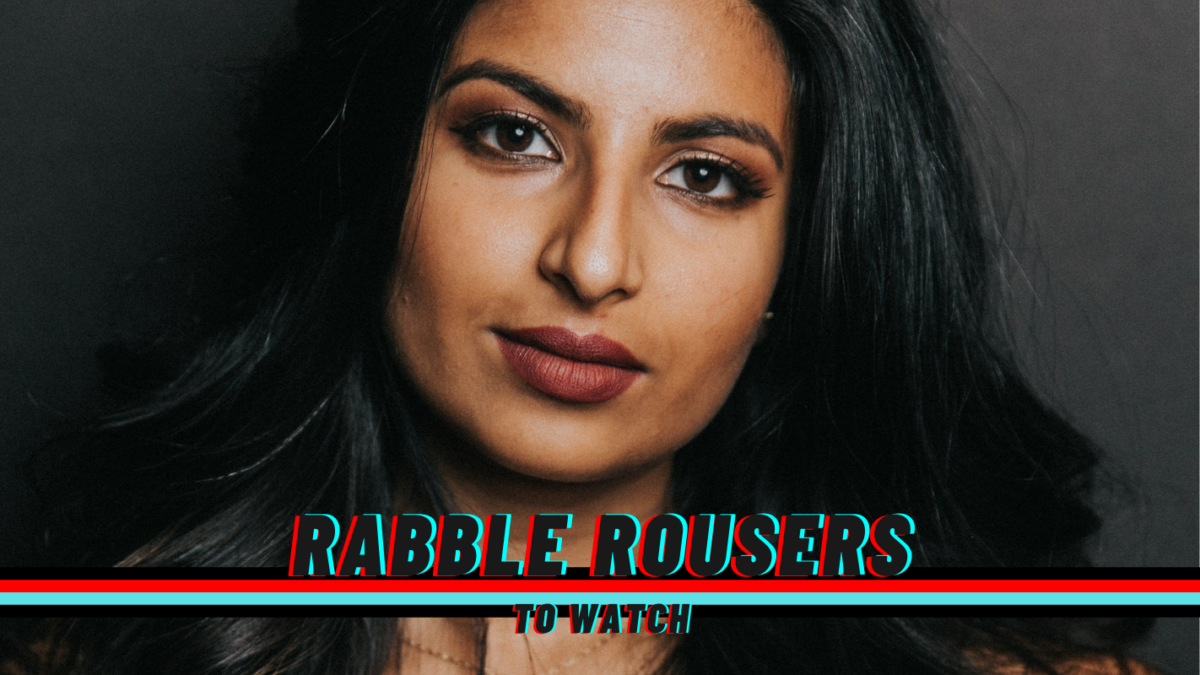Each year, we here at rabble ask our readers: “What are the organizations that inspire you? Who are the people leading progressive change? Who are the rabble rousers to watch?” Every year, your responses introduce us to a new group of inspiring activists. This is our ‘rabble rousers to watch’ series. Follow our rabble rousers to watch here.
The next individual on our ‘rabble rousers to watch’ list of 2023 is Anjali Appadurai.
Appadurai made headlines last year when she went head to head with David Eby to replace outgoing B.C. premier John Horgan. Although her campaign was eventually disqualified, one cannot say her campaign was unsuccessful. Throughout her run, Appadurai’s commitment to fighting the climate crisis made her popular with different groups in B.C. and NDP members across the county.
Appadurai continues that commitment to climate justice today. Currently, Appadurai works with the Climate Emergency Unit and the Padma Centre for Climate Justice. rabble.ca spoke with Appadurai about her efforts to educate, motivate and mobilize climate action in British Columbia.
A conversation with Anjali Appadurai
rabble.ca: Can you tell us about the work that you’re doing with your organization?
Anjali Appadurai: I wear a couple of hats.
My work at the Climate Emergency Unit is all about catalyzing action. We remind organizations, community groups, faith institutions and governments of what “emergency mode” looks and feels like, and we convene networks of organizers around big, audacious political goals like the Youth Climate Corps, a Just Transition Transfer, and Canada’s Fair Shares.
My work with the Padma Centre for Climate Justice is close to my heart, and it’s building slowly and intentionally. Diasporic communities in Canada have a significant leadership role to play in the climate struggle. As immigrants, second and third generation Canadians with families in home communities across the world, our relationship to the climate crisis is rooted in stories of migration, historical inequities and ongoing economic barriers. The Padma Centre is a hub for diasporic communities to come together and build power and leadership towards climate justice.
And there are some community projects in the works that I’m tremendously excited for. Stay tuned in the coming months!
rabble.ca: How did you first get involved in activism?
AA: I started in high school, where I was lucky enough to attend a youth program called “Humanity in Action,” run by the Red Cross. That program has sadly since been defunded.
I started a “Global Issues” club in my high school where we did a lot of anti-war work. I then got really interested in Fair Trade, and ran a campaign to get our school cafeteria to switch to Fair Trade coffee and chocolate.
That seems incredibly tame when you look at how ubiquitous Fair Trade is today, but at the time, it was a radicalizing experience that ignited in me a passion for issues of trade, economic justice, colonial impacts and the fraught concept of “development”, all of which fed naturally into my introduction to climate justice when I was in university. I had an incredible professor who moonlighted as a policy analyst for developing country negotiators at the UN Framework Convention on Climate Change. I started attending the UN COPs and organizing young people from around the world, and the rest is history.
rabble.ca: What does being nominated as a ‘rabble rouser to watch’ mean to you?
AA: I’m deeply honoured to be witnessed and appreciated by this readership. We live at a convergence of events that have been a long time in the making – the climate and ecological crisis, profound inequity, late-stage capitalism – and the nature of our political apparatus is to normalize these things and keep the system going.
Rabble rousing is a sounding of the alarm, a disruptive call to action that says: “This is actually not okay, and we demand that our leadership do better.”
Going up against power is often messy, unpalatable, or uncomfortable. That’s why I’m grateful for the nomination – it’s a recognition that disruptive work is important and even crucial for the task we face.
rabble.ca: How do you take care of yourself and find the drive to keep going?
AA: I keep my community ties strong and my relationships central in my life. It’s important to be a whole human whose identity doesn’t revolve around my work; this actually makes me better at my work. Art is the antidote – I surround myself with it. I treasure time spent with friends’ babies – they are the manifestation of life’s will to flourish. I try to create space for joy, because I know that all good work comes from that place.
rabble.ca: What is one goal you have in the next year?
AA: I want to see my projects begin to offer ways for everyone to get involved in political thought and action. I want to bring art and politics together. I want to play more music.
rabble.ca: What do you wish people knew about the organizing you do?
AA: I want to help build a culture of joyful politicization, where we all – from the toddlers to the elders – feel a sense of ownership of our governance systems. Everything is political, and I want us to build intentional practices of political action. Because, of course, we need everyone on board in this time of crisis.



